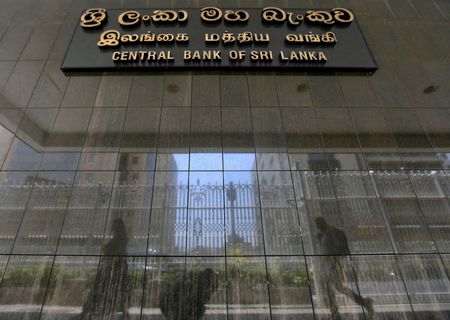
Global financial leaders discuss debt crisis in US in wake of Sri Lankan problem

Washington, Apr 21 (PTI) Sri Lanka’s bitter debt crisis experience has emerged as one of the major topics of discussion among the global financial leaders who have gathered here for the annual spring meeting of the International Monetary Fund and the World Bank, according to officials.
The island nation is grappling with unprecedented economic turmoil since its independence from Britain in 1948. The crisis is caused in part by a lack of foreign currency, which has meant that the country cannot afford to pay for imports of staple foods and fuel, leading to acute shortages and very high prices. The country is witnessing large-scale protests against the government’s handling of the debt-ridden economy – the worst-ever economic crisis in the country’s history.
“The debt crisis itself is a topic of extensive conversation this week, both at the IMF, at the World Bank, and among the G-20, and other shareholder groups that are forming this week,” World Bank President David Malpass told reporters during a news conference here on Wednesday. Finance Ministers, including India’s Nirmala Sitharaman and heads of central banks from across the world, are in Washington DC to attend the annual spring meetings of the IMF and the World Bank.
“It’s vital and we know what the data shows: a huge buildup of debt, especially in the poorest countries. It’s important that the resolution process starts early. If you wait, the resolutions are much more difficult to carry out. Sri Lanka is facing that problem now,” Malpass said. Saddled with a huge forex crisis, Sri Lanka on April 12 announced a pre-emptive default of all its foreign debt totalling USD 51 billion as a “last resort” and emergency measure.
After weeks of dithering to respond to calls for help from crisis-hit Sri Lanka, China, whose large loans and investments to the island nation led to allegations of debt diplomacy, has said it will provide “emergency humanitarian assistance” to Colombo, but remained silent on its plea for debt rescheduling. “It’s important to form the creditor committees early. There was a call today for China to form the creditor committee for Zambia, which would help with the implementation of the Common Framework. And so, I’ve mentioned that as interest rates rise, the debt pressures are mounting on developing countries, and we need to move urgently towards solutions,” Malpass said.
Vitor Gaspar, Director, Fiscal Affairs Department of the IMF told reporters that in the first year of the pandemic, global debt increased by 28 percentage points of the GDP, and that is the highest one-year jump on record. “Half of that, slightly over half of that was public debt. Now, in 2021, given economic recovery, inflation surprises, and the narrowing in deficits, the public debt-to-GDP ratio has fallen in most countries of the world, but going forward with the horizon of 2024, public debt will stay above what was projected before the pandemic,” he said.
Responding to a question, Paolo Mauro, Deputy Director, Fiscal Affairs Department IMF said India was starting out with a relatively high debt-to-GDP ratio compared with other emerging economies. “I guess the good news is that most of that debt is in domestic currency,” he said.
PTI LKJ MRJ MRJ

















POST COMMENTS (0)